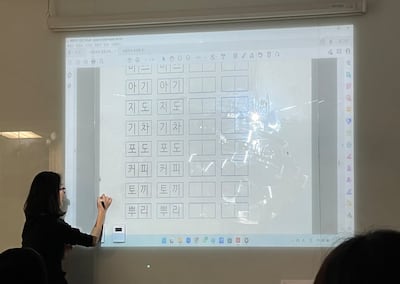If there is one regret I have from my childhood, it is that I did not retain a second language.
Even though it has been more than 30 years, I still have memories of being young and remembering how easily my mind could understand Chinese when looking at the characters and knowing their meanings. Sadly, I have since lost that skill.
Growing up in America I was surrounded by the English language on television, at school, on restaurant menus and with all my friends. Unfortunately, it seemed unlikely I would be fluent in anything else, given my surroundings.
Although my parents spoke Cantonese (my mother is from Hong Kong), they were also very busy as restaurant owners who worked hard to provide for my sisters and me. By the time I was 10, I was almost exclusively speaking English to everyone around me, including my parents. Back then, I didn’t want to stick out among my peers for being different.
I reached university, at the age of 20, for two years I took a conversational Chinese class. It taught Mandarin, which, although different from Cantonese, does have some similar-sounding words. While I learnt the basics, I felt I didn’t have the skills (or time) to keep up with it, so I gave up.

Now I’m 34 and trying again, but this time with another language: Korean.
I’ve started a beginner’s course learning Hangul (the Korean alphabet) through Abu Dhabi’s Korean Cultural Centre. The class meets three times a week for two hours. Like a lot of my classmates, I’ve felt inspired while watching Korean dramas but more recently I’ve been motivated by a trip to Seoul that really made me fall in love with the country.
Sometimes, the class feels a little childlike. We learn vowels and consonants the same way young children do. Our teacher sends us materials such as YouTube videos that are clearly aimed at a younger audience with cartoonlike graphics and song lyrics sung to a catchy tune to help us learn and remember the proper pronunciation.
But I don’t mind. Maybe this is what I’ve needed — a little redo of my childhood.
Back then, I didn’t know how to lean into my Asian heritage, instead choosing to focus on what was easier, which was learning English. But these days, I am determined to do better for myself.
When I can read a couple of Korean characters, put them together and recognise their meaning, I feel proud. I still haven’t given up on Chinese either, continuing with Mandarin on the Duolingo app, which reminds me to do daily lessons. While it isn't as easy as it probably would have been if I was younger, I am glad I’ve started again.
Living in a place with as much diversity as Abu Dhabi has taught me how wonderful it can be to know other languages and be immersed in different cultures — something I simply didn't have in the US. In nine years of living in the UAE, I’ve been able to visit Hong Kong and Seoul, as well as other Asian countries including Singapore and Japan, each time feeling empowered by the Asian side of myself that I just didn’t pay enough attention to when I was younger.
So, it may have taken some time for me to get to this point, but starting later is better than never starting at all.


